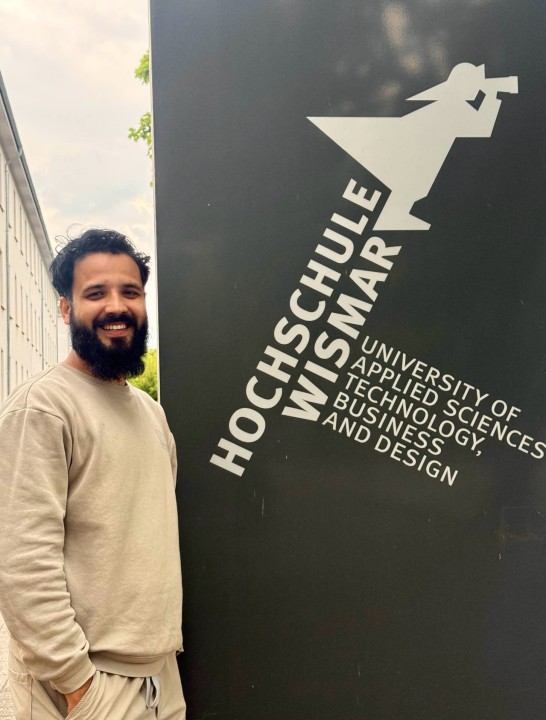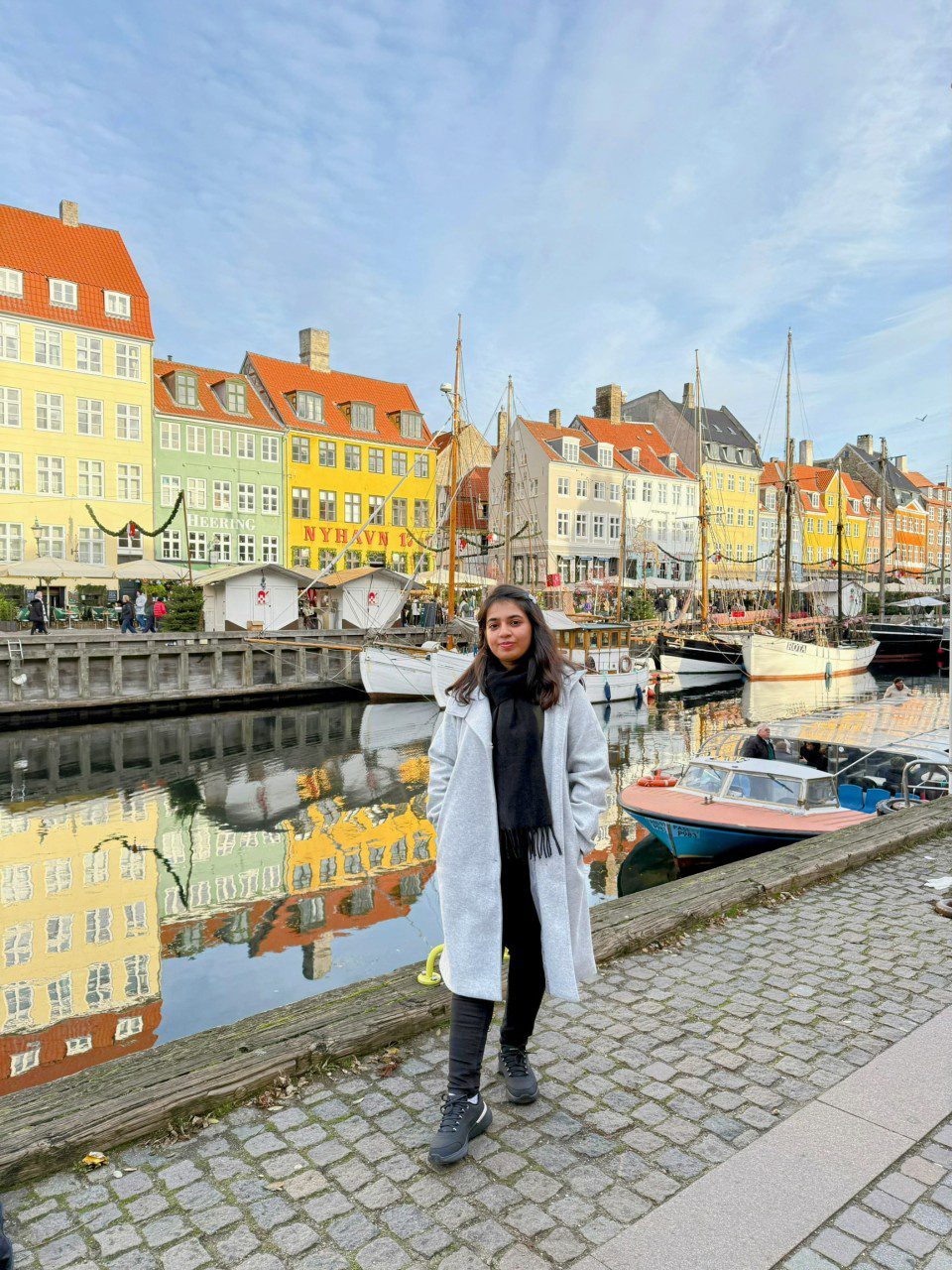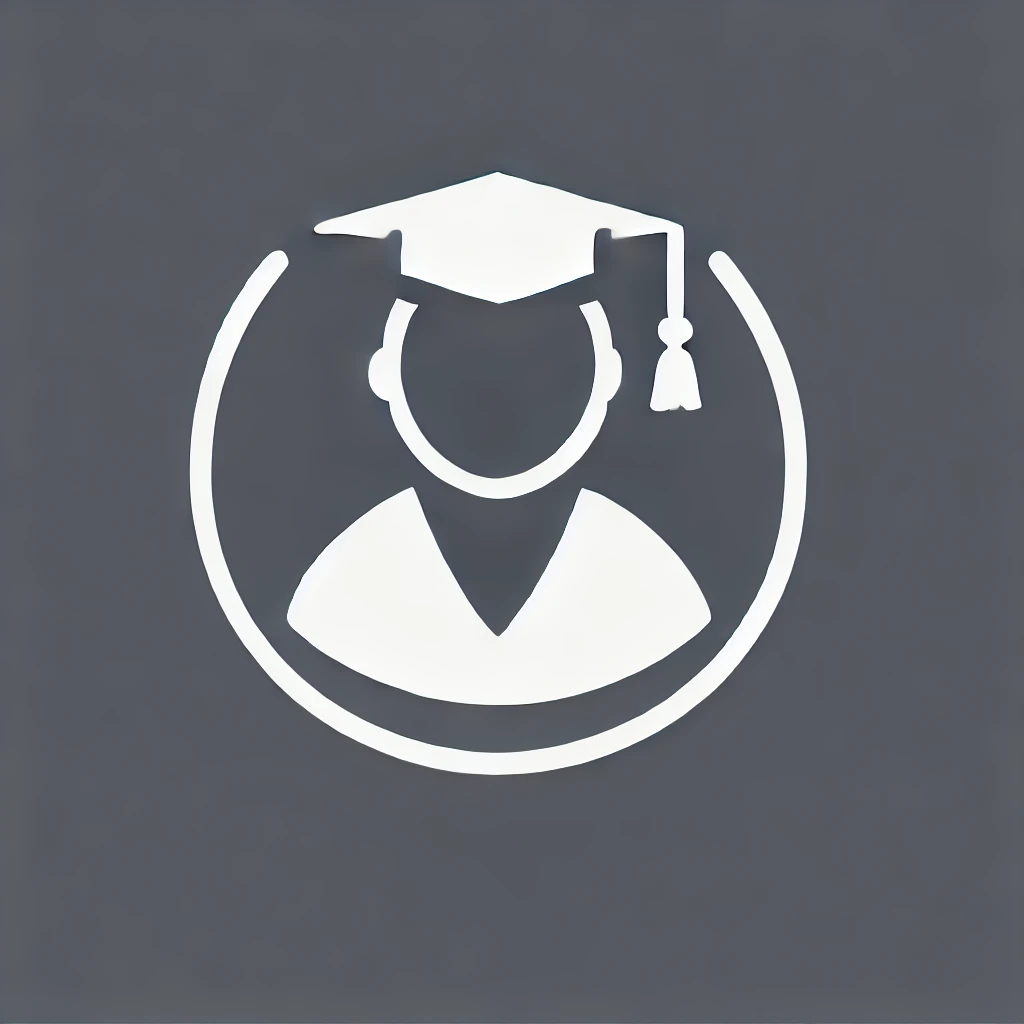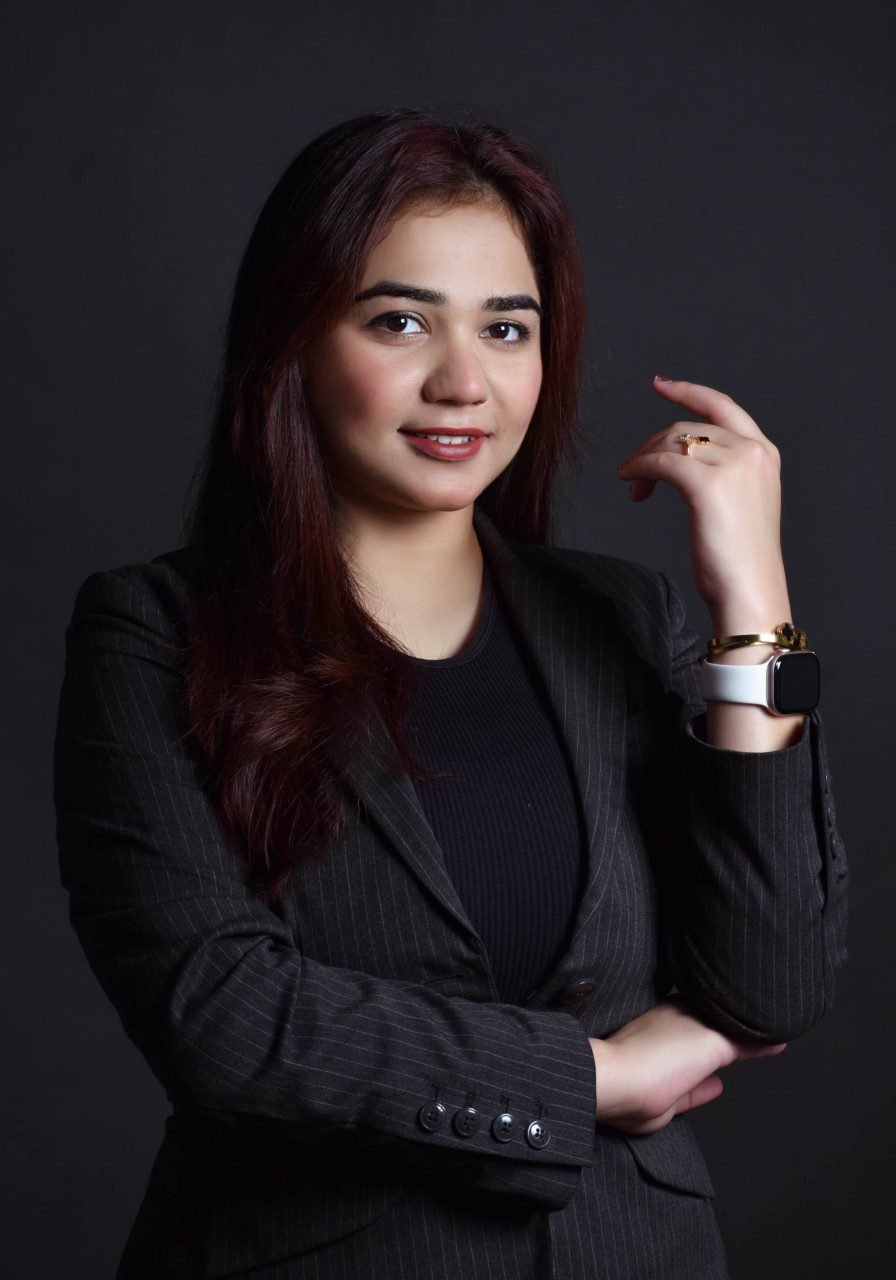How an Afghan Refugee Secured Three Fully Funded German Scholarships DAFI, Hanns Seidel Foundation, and the DAAD to Study International Management at Wismar University of Applied Sciences
University: Hochschule Wismar, University of Applied Sciences: Technology, Business and Design , Germany
Degree: Master’s in International Management
Previous Education: Master in Business Administration (CGPA 3.69/4), Bachelor in Accounting and Finance (CGPA 3.88/4)
Scholarship: DAAD Scholarship – Fully Funded
Other Offered Scholarships (if any):
Social Media:

The Journey
My name is Mansoor Rahimi, and I am originally from Afghanistan, currently living in Germany. I hold a strong academic background in business, having earned a Bachelor's degree in Accounting and Finance and a Master of Business Administration from the City University of Science and Information Technology in Pakistan. I am currently pursuing a Master’s degree in International Management at Wismar University of Applied Sciences.
My decision to pursue further education in this field stems from a deep interest in the intersection of finance, sustainability, and organizational performance. Through my academic work, especially my research on ESG and financial outcomes, and my professional experience as a financial and internal auditor, I have developed a strong analytical foundation and a commitment to responsible business practices.
DAAD Scholarship Details
My academic journey has been supported by three prestigious German-funded scholarships, each recognizing academic excellence and commitment to social impact, particularly in the context of education.
DAFI Scholarship (Germany/UNHCR-Inspire Pakistan) – BS Accounting & Finance, CUSIT Peshawar, Pakistan. I was awarded the DAFI (Albert Einstein German Academic Refugee Initiative) Scholarship during my undergraduate studies in Accounting and Finance at the City University of Science and Information Technology (CUSIT), Peshawar. Administered by UNHCR and implemented through Inspire Pakistan, DAFI supports talented refugee youth in tertiary and technical education. The scholarship covered tuition fees, books, and travel allowances.
Eligibility required academic merit (minimum 65% in prior exams), refugee status (valid POR/UNHCR card), and a strong motivation to contribute to community development.
Application Process: Candidates apply online through the official DAFI portal: https://unhcr-dafi-tertiary.scholarshipsplatform.com/
Hanns Seidel Foundation Scholarship (Germany) – MBA, CUSIT Peshawar, Pakistan
While pursuing my MBA, I was honored to receive the Hanns Seidel Foundation Pakistan (HSSP) Scholarship, a merit-based program supporting academically strong students. The scholarship provided a quarterly financial grant to cover tuition, educational materials, and living expenses, and included a laptop for academic use.
HSSP scholars are expected to maintain high academic standards and contribute to community well-being. Misconduct, underperformance, or absenteeism could lead to discontinuation.
Application Process: Applications are reviewed twice yearly and include an application form, cover letter, academic references, transcripts, and verification of refugee status. More details are available at https://www.hss.de/stipendium/
DAAD Scholarship (Germany) – Master’s in International Management, Hochschule Wismar, Germany. I am currently a DAAD (German Academic Exchange Service) scholarship holder pursuing a Master's in International Management at Wismar University of Applied Sciences. DAAD supports international students with exceptional academic records, leadership potential, and a vision for development.
The scholarship provides full financial support, including tuition waiver, monthly stipend, health insurance, and travel costs.
Application Process: Interested candidates can search and apply for DAAD programs via the official database: https://www.daad.de/en/study-and-research-in-germany/scholarships/
All three scholarships are funded by the German government and demonstrate Germany’s commitment to education and academic empowerment.
Educational Background
I hold a strong academic foundation in business, accounting, and management, which has progressively shaped my academic interests and professional goals.
I completed my Bachelor of Science in Accounting and Finance from the City University of Science and Information Technology (CUSIT), Peshawar, Pakistan, with a CGPA of 3.88. During this degree, I conducted research on The Impact of Gender Diversity on Financial Performance of Top 100 Companies of Pakistan, which sparked my interest in the intersection of social governance and financial outcomes.
Building on this foundation, I pursued a Master of Business Administration (MBA) from the same institution, graduating with distinction—CGPA of 3.69. My thesis, The Impact of ESG on Financial Performance of Top 100 Companies of Pakistan, allowed me to deepen my understanding of sustainable finance and corporate accountability. This research not only sharpened my analytical and research skills but also motivated me to explore ESG, green innovation, and human capital analytics in greater depth.
Currently, I am enrolled in the Master’s in International Management program at Wismar University of Applied Sciences, Germany, with a current grade of 1.8 (German Grading). This program has equipped me with an international perspective on management practices and reinforced my interest in global sustainability standards, compliance, and the Resource Nexus.
In parallel, I am also progressing through the ACCA (Association of Chartered Certified Accountants, UK) qualification, with exemptions for 9 papers based on my undergraduate background. This professional training complements my academic work with a robust skill set in auditing, financial analysis, and strategic planning.
Together, these degrees have provided me with the analytical acumen, research capabilities, and global perspective needed to engage meaningfully in the fields of ESG, sustainable business, and international management.
How Did You Prepare to Apply to Wismar University of Applied Sciences?
My journey to applying for international institutions, particularly in Germany, was grounded in a combination of self-research, strategic planning, and targeted preparation. I relied heavily on official websites, DAAD’s scholarship database, university portals, and social media platforms like LinkedIn and academic forums to gather accurate and updated information on programs, admission requirements, and scholarship opportunities.
When it came to language proficiency, I appeared for both the IELTS and the Duolingo English Test, scoring the required bands for the DAAD scholarship. My preparation for these exams was focused and efficient, as I already had a strong command of English thanks to my background as the founder and director of Rahimi English Language and Computer Academy in Peshawar.
To familiarize myself with the IELTS exam format and polish specific skills, I studied online through YouTube tutorials and also attended a few focused sessions with Dr. Sami IELTS Peshawar. These sessions helped me understand the paper pattern and test-taking strategies, rather than the language itself, which I already used professionally in my academic and teaching work.
This well-rounded preparation enabled me not only to meet the requirements for admission and scholarships like DAAD, but also to feel confident and ready for an international academic environment.
How Did You Prepare to Apply for the DAAD Scholarship?
Applying for competitive scholarships like DAFI, the Hanns Seidel Foundation Scholarship, and DAAD required careful planning, documentation, and a strong academic profile. My preparation was driven by both research and persistence.
For the DAFI Scholarship, I stayed in touch with the Inspire Pakistan website, the local implementing partner of UNHCR. I regularly monitored announcements and updates through their website and social media. I gathered all required documents in advance—including my Proof of Registration (POR) card, academic transcripts, bonafide letters, and a strong motivation letter highlighting my academic achievements and goals. I also sought advice from past recipients, which helped me understand what evaluators look for in an application.
When applying for the Hanns Seidel Foundation Scholarship, I followed a similar approach. I prepared a comprehensive application in line with their guidelines: a signed application form, a two-page cover letter explaining my academic and social contributions, a one-page CV, letters of recommendation, and verified refugee documentation. I was honest about my goals and challenges and showed how I could contribute to the refugee and host communities. Since HSSP emphasizes integrity and academic diligence, I made sure to reflect those values in both my documents and during communication.
For the DAAD Scholarship, I used DAAD’s official scholarship database and filtered for programs relevant to my academic field. I carefully reviewed eligibility, documentation, and deadlines. I prepared a strong CV, a focused motivation letter, and my transcripts/degree as per the requirements. Since DAAD is highly competitive and merit-based, I ensured that every part of my application reflected my academic performance, research experience, and long-term goals in a sustainable way.
In all three cases, my preparation was built on a strong academic record, meaningful volunteer work, professional experience, and clarity about how I intend to use my education to give back to my community. Being organized, proactive, and committed to excellence helped me succeed in each application.
What Do You Think Made Your Application Stand Out?
I believe several key factors helped my application stand out for scholarships like DAFI, Hanns Seidel Foundation, and DAAD.
I believe what made my application stand out was a combination of strong academic performance, clear goals, and a well-structured application that aligned closely with the values of the scholarship providers.
Throughout my academic journey, from my BS in Accounting and Finance to my MBA, I consistently maintained high grades and engaged in meaningful research, including topics such as ESG and financial performance. This demonstrated not only my academic capability but also my commitment to relevant global issues.
Additionally, I was able to clearly communicate my motivation for higher education and how I intended to use it to make a positive impact, particularly in the context of refugee communities. My personal statement reflected both purpose and authenticity, which I believe resonated with the selection committees.
In summary, it was the combination of academic excellence, focused goals, and sincere motivation that helped my applications succeed.
What Would You Have Done Differently if You Were Going Through the Process Again?
If I were to go through the application process again, I would start preparing much earlier, especially in terms of gathering and organizing supporting documents. Many scholarship applications require translated transcripts, recommendation letters, and official verifications, which can be time-consuming to collect.
I would also spend more time on tailoring each motivation letter to align more closely with the mission and values of each scholarship. While I did my best, I’ve since learned that even small adjustments in wording and emphasis can make a big difference in how an application is perceived.
Lastly, I would reach out to more past recipients for insights and feedback. Speaking with those who had successfully gone through the process gave me valuable tips, but doing that earlier and more extensively would have made my applications even stronger.
Overall, while I am grateful for the success I had, I now understand the value of early planning, personalized application materials, and learning directly from those with experience.
What Advice Would You Give Those Looking to Apply for a Similar Scholarship?
My biggest advice is to start early and stay organized. Many strong candidates miss out simply because they delay gathering documents or underestimate how much time the process takes. Create a checklist of all required documents—transcripts, recommendation letters, personal statements, ID or Passport—and prepare them in advance.
Secondly, be authentic and focused in your motivation letter. Don’t just repeat your CV—use that space to tell your story, explain your goals, and show why this scholarship is important to your journey. Be clear about how your education will benefit not only you, but also your community.
Also, make sure your academic performance is solid, especially if you're applying for merit-based scholarships like DAAD, DAFI, or Hanns Seidel. If your grades are strong, highlight them confidently. If they are average, emphasize growth, resilience, and community involvement.
Finally, ask for help. Talk to past scholarship holders, join online forums, and don’t hesitate to reach out to institutions or NGOs for guidance. The process can feel overwhelming, especially as an international student, but there are many people willing to support you.
Remember: scholarships don’t just reward intelligence—they reward purpose, effort, and vision. If you bring those things to your application, you’re already on the right path.
Ich Danke Dir
DAFI https://www.unhcr.org/pk/what-we-do/dafi-scholarships
Hanns Seidel Foundation https://www.hss.de/en/
DAAD https://www.daad.de/en/studying-in-germany/scholarships/daad-scholarships/
Want to submit your
scholarship journey?
Submit Your Story Here!
More Scholarship Recipients

I am Sabeen Imran, coming from Pakistan, where I did my Bachelor's in Environmental Sciences from the University of Veterina .... Read more

My name is Ivena Nathania Victor; you can call me Ivena. I have a Master’s of Science and Master’s of Arts degree in Cli .... Read more

My name is Aisha Lareb, and I am from Sindh, Pakistan. Growing up, I witnessed the challenges faced by women in my community .... Read more

Leave A Comment